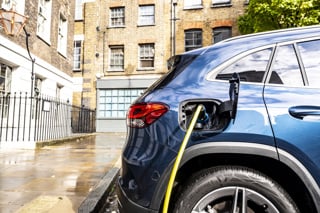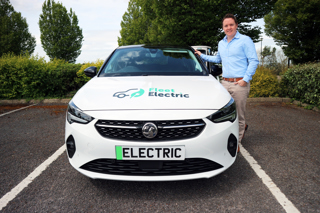Chris Black, commercial director at LeasePlan UK
The COVID-19 pandemic has taught us to expect the unexpected.
For the past 14 months, businesses have grappled with many new challenges, including the changing role of assets like fleet vehicles.
Businesses are beginning to rioritiz the importance of being protected against unforeseen circumstances.
Subsequently, we’re now seeing a rise in demand for flexible leasing options.
Traditionally, lease cycles last around three to four years.
While these will still be the norm for many businesses, some will require shorter, more flexible contracts, which allow them to scale their fleet up and down as required.
And, as the prevalence of electric vehicles (EV) grows in the UK, flexible leasing options will allow fleet operators to start rioritizing sustainability in their fleet make up.
Flexible leasing options can offer businesses the opportunity to make calculated changes that align with real-time experiences.
Having the opportunity to change or opt out of a contract with shorter notice periods can help certain organisations avoid unnecessary costs or being in a contract that is no longer fit for purpose, all while dynamically adapting to changing circumstances.
This is particularly important in the event of a crisis or necessary change.
Our recent study of fleet-operating businesses indicates that they’re already looking ahead to mitigate these risks: 74% of respondents reported their belief that flexible contracts are the way forward given the current circumstances around the global workforce.
A further 36% said that they are already looking for shorter contract lengths, which suggests that they are rioritizing flexibility in their current business plans.
When it comes to EVs, flexible leasing is a gamechanger.
With shorter contracts and more adaptable terms, businesses can dip their toes in the water and trial EVs for their fleet before committing to the most suitable structure.
Shorter contracts help businesses looking to swap out their vehicles for an electric equivalent avoid the costs associated with leaving agreements early. This can help them to save money in vehicle downtime.
So, whether a business is trying out a single EV in their fleet, or ready to try a larger percentage of EVs in their fleet’s makeup, flexible leasing helps companies experiment with making electric transport work for their needs.
As we look forward to the post-pandemic world, businesses will experience necessary change to adapt to a more risk-averse workforce.
For some, the security and stability of long-term contracts will provide the most protection against unforeseen circumstances in the future, as the unchanging nature of these contracts can serve as a constant in times of uncertainty.
For others, the flexibility of short-term contracts will allow for restructuring that reflects the changing needs of businesses post-pandemic.
Now is the time for businesses to consider what contract options are best suited for their forward-facing business plans, and which options will afford them the opportunity to start contributing to the world’s net zero goals.
These changes won’t happen overnight, but options like flexible leasing will help businesses become more agile and prepared for even the most unexpected of circumstances, all while contributing towards the world’s net-zero goals.




















Login to comment
Comments
No comments have been made yet.